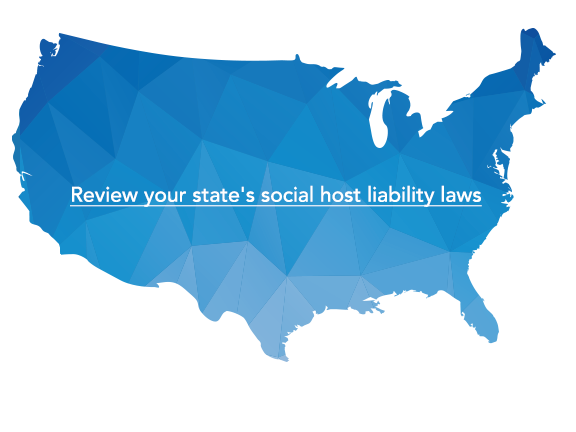Personal Risk Insights
Hosting a Party? You May Be Putting Your Assets at Risk
NOVEMBER 1, 2022
It’s the time of year when family and friends gather to celebrate the holidays. Whether it’s a New Year’s Eve party or cocktails for a small group of friends, homeowners may be held liable for accidents that occur during and after an event they host.
Alcohol-Related Risks
End-of-year holidays are among the top six most dangerous times of year when it comes to liquor-related fatalities. In the U.S., drunk driving claims more than 11,000 lives annually — approximately 32 people each day, or an individual every 45 minutes, according to the National Highway Traffic Safety Administration.1 These deaths and related damages contribute to a cost of $52 billion per year.
Before hosting a social gathering in your home, consider the liability exposures associated with alcohol-related accidents. Both criminal and civil ramifications may be imposed for:
- Furnishing liquor to underage guests
- Guests who become injured due to intoxication
- Car accidents that occur after guests leave
It’s important to understand your state’s laws that pertain to social host liability, as they vary widely from state to state. Currently, the majority of states have laws (or existing case law) that allow the victim of a drunk driver to sue the host who served the driver alcohol. While a few states do not impose any liability on social hosts, other states extend liability to injuries that occur anywhere an inebriated guest travels. In most states, the laws are particularly severe when the accident involves alcohol provided to a minor.
When hosting an event, make sure to have a plan in place, such as hiring a professional bartender, securing ride-sharing services for guests or providing breathalyzer checks.These risk management strategies afford an additional layer of asset protection.
Prior to hosting an event, review your current homeowners policy to confirm appropriate coverage is in place for a major alcohol-related accident. The liability limits must be sufficient to cover the cost of a protracted litigation, medical expenses, lost wages, wrongful death, and pain and suffering of injured person — all of which could easily exceed $1 million. In many cases, your existing policies will need to be reviewed for exclusions or limitations that would affect liability risks or increase uninsured risks for the policy owner.
Limited Coverage for Social Host and Premises Liability Risks
Not all incidents that create liability for hosts are alcohol related. Guests can sustain injuries from unsafe conditions like icy walkways, uneven floors, broken staircases, or collapsing balconies. Before hosting a party at your home, remove, repair or eliminate trip hazards such as loose carpets, children’s toys, cracks in the driveway, extension cords, or stairs not up to code.
In addition, consider the many premise liability risks that could bring legal troubles. These include injuries from falling objects, swimming pools and trampolines, as well as food poisoning, to name just a few. Further tips for event preparation are available in USI’s checklist for safely hosting a social event.
Homeowners insurance provides limited coverage — typically $100,000 to $300,000, depending on the policy — for both social host and premises liability risks. Unfortunately, these policy limits may not cover the medical costs associated with most major injuries. And if the injured party retains counsel, the funds on the policy would be inadequate for defense costs, personal injury damages and potential civil penalties. A personal risk analysis is recommended to assess whether current insurance policies provide adequate coverage for serious injuries.
How USI Can Help
USI’s personal risk team is available to assist with all your risk management needs. To learn more about strategies for your event or to receive a comprehensive personalized risk management plan, please contact us at personalriskservice@usi.com.
Sources:
1 https://www.nhtsa.gov/risky-driving/drunk-driving
SUBSCRIBE
Get USI insights delivered to your inbox monthly.

